For openers, we have COVID vaccines – a choice or three, but not at our discretion. We are, indeed, lucky to have what is on offer, but do remain a touch cynical – none have been adequately tested and tried. At least the brief phases 0 and 1 of clinical trials did not harm anybody, but nobody knows quite how long the promised immunity might last.
Having spent tens of billions on miraculous invention, there are great expectations. But logistics do not accede necessarily to lucre. Who exactly is going to disperse the millions of vials across the country in order of clinical precedence? Who is going to jab the millions of arms?
Evidently, we do not have enough health care workers to operate our Nightingale hospitals as 30,000 of our scarce NHS staff are off sick or isolating at any one time (NHS England/RCN), let alone to roll out a vaccination programme for the whole of our vulnerable population.
Retired doctors are being offered training to administer the jabs, but the inappropriately stringent e-learning demanded is testing their patience and persistence – “an overload of bureaucracy”, as one elderly dentist put it (BBC).
There are going to be frustrations, delays and inevitable inadequacies. It is highly unlikely that the outcome of our vaccination efforts will be at all evident until next winter, after the passing of another summer’s sunshine has left us prey again to our opportunistic viruses.
Between times, we need to take responsibility for our own wellbeing, and use any means to fend off a very efficient predator which is having a glorious feast while its luck lasts. It is grazing enthusiastically on our prolific younger generations without doing any great harm, but it is killing, in passing, the elderly, the disadvantaged, the dark skinned, the obese and the diseased. Not many of these citizens are about to invigorate themselves with brisk walks, fresh air, healthy food and personal trainers, and they will all be short of vitamin D.
Indeed, a common denominator in the great majority of COVID deaths is lack of vitamin D. This is totally irrefutable, yet last month the National Institute of Healthcare Excellence (NICE), Public Health England (PHE) and the Scientific Advisory Committee on Nutrition (SACN) agreed that although “low vitamin D status was associated with more severe outcomes from COVID-19”, “more research was needed to recommend vitamin D for the prevention or treatment of COVID-19 at this time”.
On 21 December, an open letter signed by 170 international COVID experts was sent to world governments calling for “immediate, widespread, increased vitamin D intake to 4000iu per day for healthy adults” as “the preponderance of evidence indicates that increased vitamin D would help reduce infections, hospitalisations, ICU admissions and deaths”, and that “many factors are known to predispose individuals to higher risk from exposure to SARS-CoV-2, such as age, being male, comorbidities, etc, but inadequate vitamin D is by far the most easily and quickly modifiable risk factor with abundant evidence to support a large effect”.
Please do read the full text at vitamindforall.org and forward it to everybody you may think would be interested.




